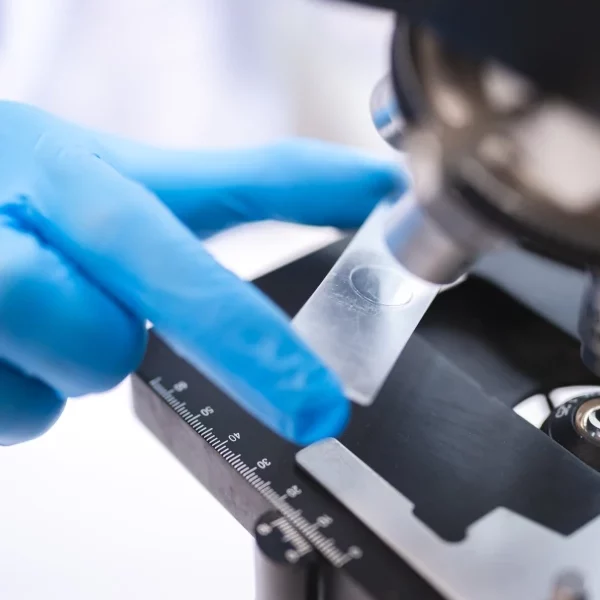It means having a mutated CFTR gene in one’s genetic makeup. By “mutated” we mean that the DNA sequence that makes up the gene is different from the normal one. The presence of only one mutated CFTR gene in the genetic makeup does not entail the symptoms of disease, because the defective gene is compensated by a copy of the normal CFTR gene. For this reason, those who possess a mutated CFTR gene are defined as “carriers” or “healthy carriers” (the two terms are equivalent).
The healthy carrier of cystic fibrosis inherited the mutated gene from one of his parents. The carrier has a 50% chance of passing on the mutated gene to his children. When a child inherits the mutated gene, he becomes like the healthy carrier parent. The carrier (if the partner is not a carrier) also has a 50% chance of not passing on the mutated gene to their children, who in this case will not be carriers. In the vast majority of cases, those who are carriers do not know they are carriers, because they do not have any health disorder and do not have relatives in the family known with this disease or who know they are carriers. Therefore, they cannot know that, if chance wants them to meet a carrier partner, they will have a 1 in 4 probability at each pregnancy of having children with cystic fibrosis.

It is estimated that in Italy there is around one healthy carrier of the cystic fibrosis gene out of every 30 people, namely almost 2 million people. This is the reason why cystic fibrosis is one of the most frequent serious genetic diseases in all populations of European and North American origin. In people from sub-Saharan Africa and the Far East, the occurrence of carriers of the mutated gene is rarer, and therefore the disease is less frequent.
The parents of a person diagnosed with cystic fibrosis are “obligate carriers”, meaning they are certain to be healthy carriers of a faulty gene. This is how many individuals discover they are carriers. The only other, much rarer, circumstances in which a person may be born with cystic fibrosis occur if one parent is a carrier and the other one is affected by CF (50% risk) or if both parents are affected (100% risk).

Those without children affected by cystic fibrosis can determine if they are carriers through genetic testing for cystic fibrosis. The test usually involves a blood sample from which DNA is extracted and analyzed for mutations in the CFTR gene. The testing is performed in specialized and qualified laboratories only and is covered by the National Health Service if there is a family history of cystic fibrosis. Otherwise, the cost is typically borne by the individual (with certain exceptions in specific regions and specialized CF reference centers). It is important for this test to be paired with a genetic counseling interview. The most qualified centers offer both genetic counseling and the blood draw for the test in a single appointment and at the same location.

Genetic counseling is the couple’s interview with the geneticist: it serves to understand if there are, from a genetic point of view, any issues or risks that could affect a child’s health. Ideally, the consultation should be scheduled during the preconception period, allowing the geneticist to review the family’s medical history (it is essential that both partners are present) and recommend any necessary tests before the conception, thus avoiding the need for fetal screening later on.
In the specific case of cystic fibrosis, genetic counseling serves to inform couples in the general population about the carrier test and its possible outcomes. It is important to remember that a person can be a carrier of the mutated CFTR gene even without a family history of the disease, among relatives or ancestors.
A carrier test is recommended for anyone with a family history of cystic fibrosis, as they are more likely to be carriers of the CFTR gene than the general population. In such cases, identifying the specific mutation in the affected family member is essential.
On the other hand, any person or couple in the general population, unlike relative of the people affected, does not have an increased risk of having a child with CF. Their risk is about 1 in 3000 with each pregnancy. If they wish to carry out screening to reduce the risk of having children with cystic fibrosis, they can opt for the test for CF carrier.

In the general population, genetic testing for cystic fibrosis is able to detect most, although not all, healthy carriers. This is due to the fact that standard genetic tests identify an average of about 85% of CFTR mutations in Italy, with variants related to the regions and laboratories in which the analysis is carried out. As a result, a modest share of subjects may receive a “not carrier” test result, despite them actually being carriers (the “false negative” cases). It is also possible to undergo an in-depth analysis, known as second- and third-level analysis, which, if negative, can further reduce the risk of being a carrier, though it cannot completely eliminate it. However, these analyses can sometimes yield unexpected or difficult-to-interpret results, so the decision to proceed with them should be accompanied by a thorough explanation of their characteristics, which genetic counseling can reliably provide.
In conclusion, for individuals in general population, when the test identifies a mutation in the CFTR gene, the result is reliable and confirms that the person is a healthy carrier of the mutated CFTR gene. If no mutation in the CFTR gene is detected, the result indicates a significantly reduced likelihood of being a carrier, but it does not entirely rule out the possibility.
CAUSES AND TRANSMISSION
THE CFTR GENE
MANIFESTATION AND EVOLUTION
DIAGNOSIS
TREATMENT